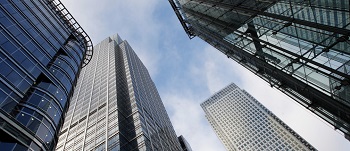Building For Inclusive Growth
 Over the past decade, different socialized housing projects have been built by the government and a few property developers. Such projects were meant to address the need of low-income families for affordable, decent homes.
Over the past decade, different socialized housing projects have been built by the government and a few property developers. Such projects were meant to address the need of low-income families for affordable, decent homes.
In 2011, the government launched the Armed Forces of the Philippines (AFP) and the Philippine National Police (PNP) Housing Project, a five-year flagship project of the National Housing Authority (NHA), to provide permanent housing and security of tenure for uniformed personnel with low income.
The PNP and AFP Housing Project is being implemented in phases, in several sites across the country, including the provinces of Rizal, Laguna and Cavite.
Each two-storey unit, which has a lot area of 40 sqm and a floor area of 22 sqm, costs P140,000. According to the NHA, each beneficiary pays a monthly amortization of only P200 for the first five years, while the payment for the remaining 30 years was computed using a compounded interest method to produce equally affordable amortization ranging from P400 to P800 a month.
Meanwhile, through the Community Mortgage Program (CMP), the government also provides financing assistance to beneficiaries of socialized housing projects. The CMP, anchored on the concept of community ownership, is a mortgage financing program of the Social Housing Finance Corp., which legally helps organized associations of underprivileged and homeless citizens to purchase and develop a tract of land. It likewise aims to assist residents to own the lots they occupy or choose where to relocate and eventually build a new improved community.
In Quezon City, the city government’s socialized housing projects are called “Bistekville,” which targeted informal settler families. The first two, Bistekville I in Barangay Payatas and Bistekville II in Barangay Kaligayahan, Novaliches, were completed in January 2013.
Valenzuela City’s Disiplina Village-Ugong, launched in 2010, was a housing project for the residents of the city who lost their homes due to Typhoon Ondoy.
Disiplina Village-Ugong is a 1.9-ha resettlement site in Barangay Ugong, established in partnership with private entities and NGOs in the city through the Dakilang Handog Foundation Inc. Its design comprised of 56 cluster housing buildings that can accommodate the nearly 900 families displaced along the Tullahan River.
It was followed by Disiplina Village–Bignay which accommodated 3,708 families previously living along waterways and those affected by the NLEX Segment Expansion Project.
 In February this year, the city government of Valenzuela broke ground for a third Disiplina Village in Barangay Lingunan.
In February this year, the city government of Valenzuela broke ground for a third Disiplina Village in Barangay Lingunan.
Ayala Land, more known for its luxury and premier residential communities, established in 2011 its socialized housing arm BellaVita, a subsidiary that undertook its first project in General Trias in Cavite province.
Developments of BellaVita, which means beautiful life, were aimed at providing decent but affordable homes to starting families, civil servants, private workers, entrepreneurs and overseas Filipino workers (OFWs), who are either seeking to own their first home or looking for rental income opportunities.
The company embarked on developing a social enterprise community with units worth between P400,000 and P650,000 and whose monthly amortization can be as low as P2,500 through Pag-Ibig financing.
Apart from Cavite, BellaVita also has presence in Pililia, Iloilo, Batangas, Pampanga, Quezon, Nueva Ecija, Cagayan de Oro, Laguna and Tarlac.
Stonewell, Rockwell Land’s venture into the affordable housing segment, includes a 5.8-ha residential development located in Sto. Tomas, Batangas.
 The said project is a mix of economic (25 percent) and socialized (75 percent) housing units, replete with amenities such as clubhouse, basketball court, children’s playground and landscaped park. It offers single-storey row houses and loft-ready duplex units, with package prices ranging from P450,000 to P1.1 million.
The said project is a mix of economic (25 percent) and socialized (75 percent) housing units, replete with amenities such as clubhouse, basketball court, children’s playground and landscaped park. It offers single-storey row houses and loft-ready duplex units, with package prices ranging from P450,000 to P1.1 million.
(https://business.inquirer.net/267254/building-for-inclusive-growth By Ana Roa)
